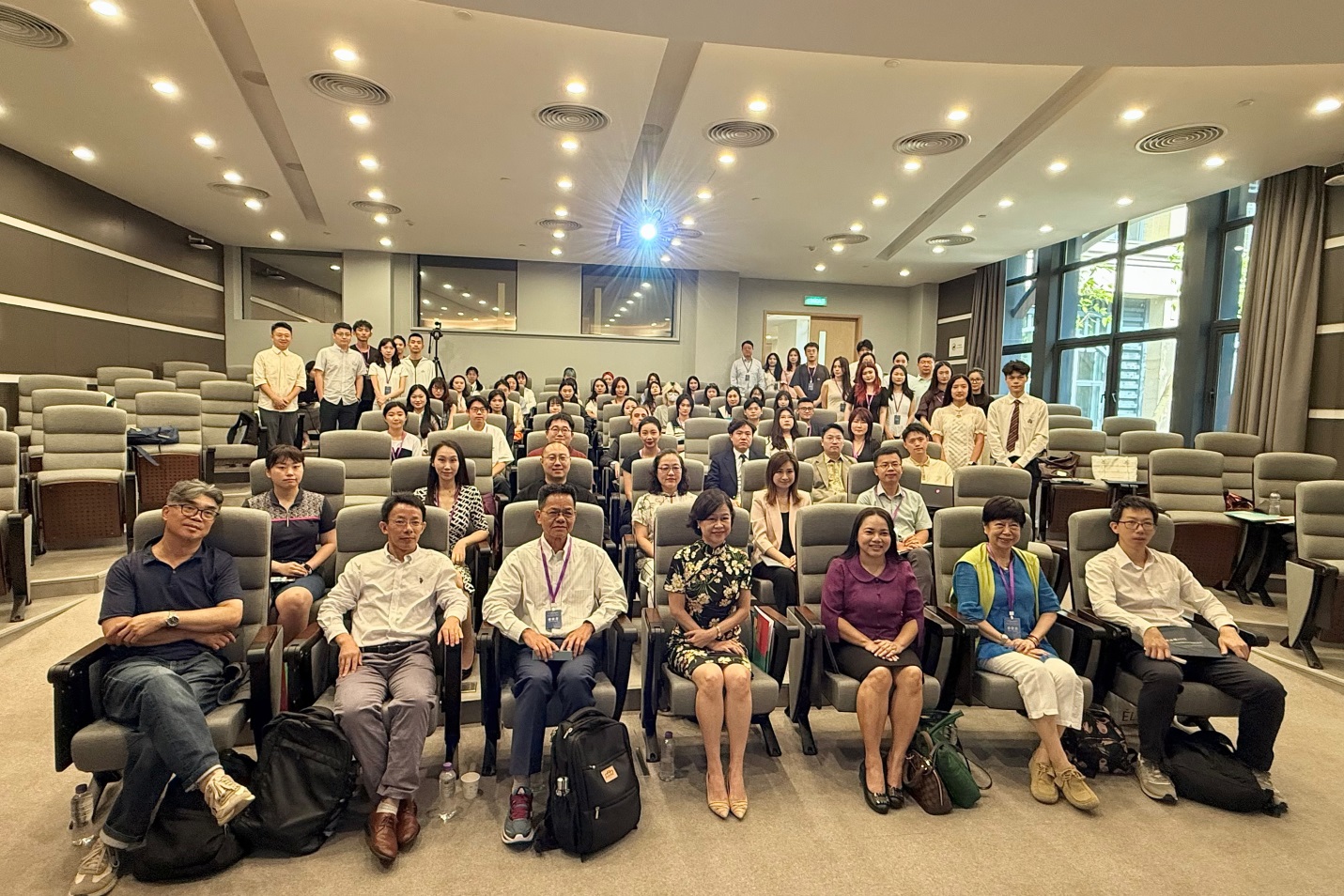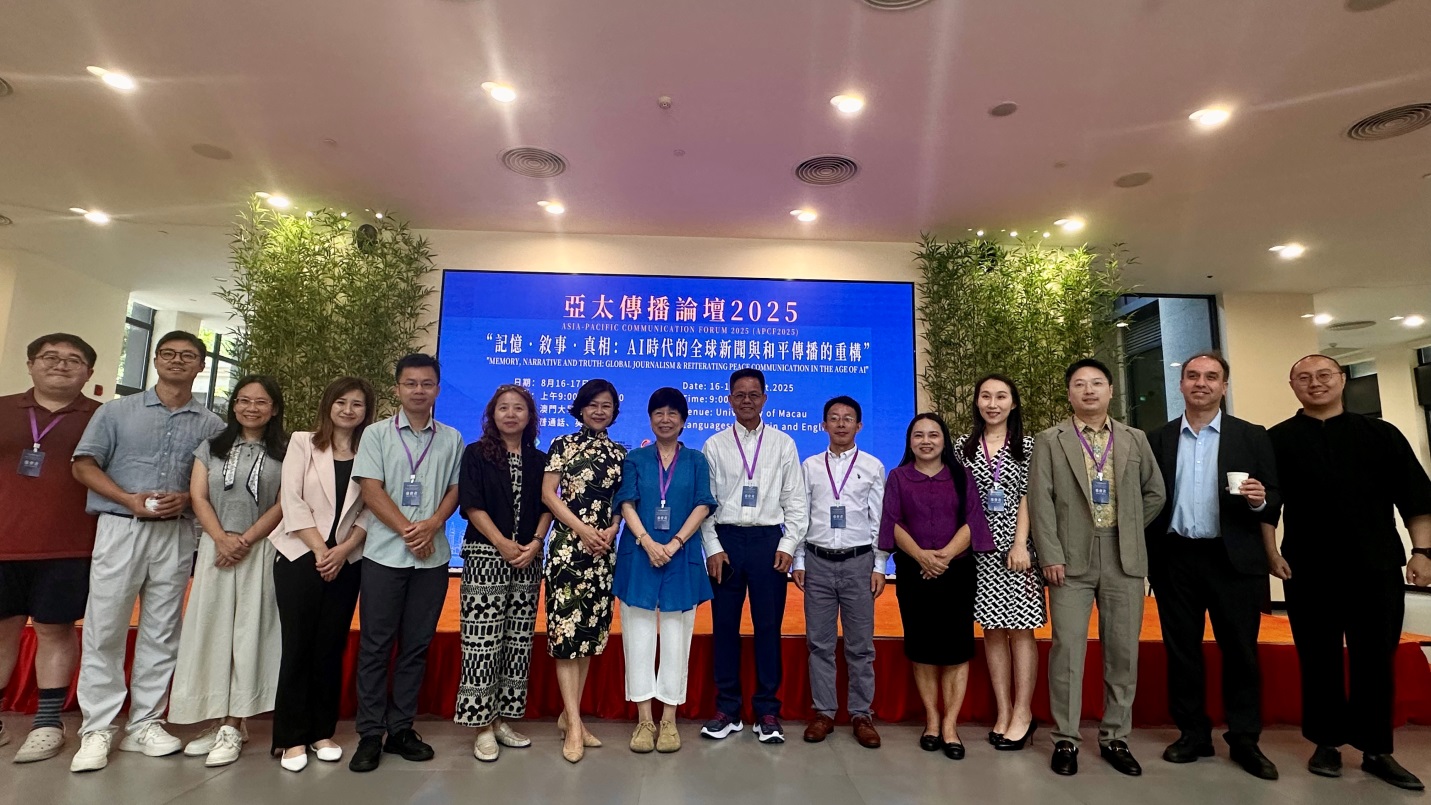
Global experts and academicians explored how the concepts of memory, narrative and truth can be redefined in the age of artificial intelligence at the Asia-Pacific Communication Forum 2025 in Macao.
With the theme “Memory, Narrative and Truth: Global Journalism & & Reiterating Peace Communication in the Age of AI”, the forum was attended by nearly 100 scholars and graduate students from Chinese mainland, especially from the Greater Bay Area, and the Asia-Pacific region.
On the occasion of the international commemoration of the 80th anniversary of the victory in the anti-fascist war, the conference also focused on promoting innovation and development of peace communication in the context of globalization.

During the keynote session on Aug 16, Shuhua Zhou, chair of the Department of Media and Communication, the City University of Hong Kong, started with the concept of the uncanny valley. The factors that influence the perception of AI communicators were explained in detail.
Peter Schulz, director of the Institute for Communication and Health at the University of Lugano, Switzerland, focused on updating beliefs in the age of AI, specifically examining the role of ChatGPT in correcting misinformation in the healthcare field.
Kanokporn Numtong, a well-known sinologist and deputy dean of administration, the School of Humanities, Kasetsart University of Thailand, presented the history and current situation of translation and dissemination of Chinese classics, martial arts novels and modern literature in Thailand.
Zeng Yiguo, deputy dean of the Faculty of Journalism and Communication at Jinan University, emphasized cultural communication in the GBA.
He suggested redefining the GBA beyond the boundary of geographical space and creating the concept of an open and cultural GBA to build a fluid, negotiated and innovative GBA communication.
Richard Xu, associate professor and deputy head of the Department of Communication at Beijing Normal-Hong Kong Baptist University, explored the phenomenon of the Pop-Mart trend and how it commercializes the emotions of Generation Z.
Athena Seng, executive director of the Macao Association of Internet Research (MAIR), showed how AI can support data research and unleash the potential of insights and innovation.
Participants also discussed a wide range of topics, including communication--temporal-spatial contexts and social practices, cultural identity and narrative construction, public discourse and information conflict, communication and social behavior, cultural communication, symbolic meaning and social governance, Southeast Asian cultural communication in the new era, and frontiers of AI and communication.
The forum organized a methodological workshop on AI-powered big data analysis. A workshop introduced DiVoMiner, a data platform developed in Macao, and explained how it can be used for scientific and efficient content analysis.
The five best contributions were selected and honored with the “Bes Paper Prize”, which was provided by the academic research platform DiVoMiner.
The conference, which ended Sunday, was jointly hosted by the Asia-Pacific Communication and Exchange Association (APCEA), the Centre for Macau Studies (CMS), the University of Macau and the School of Communication of East China Normal University.
The forum’s collaborative partners included MAIR and the Asia-Pacific Communication Forum Alliance (Macao), Great Bay Express and Macao Cultural Tourism News.


